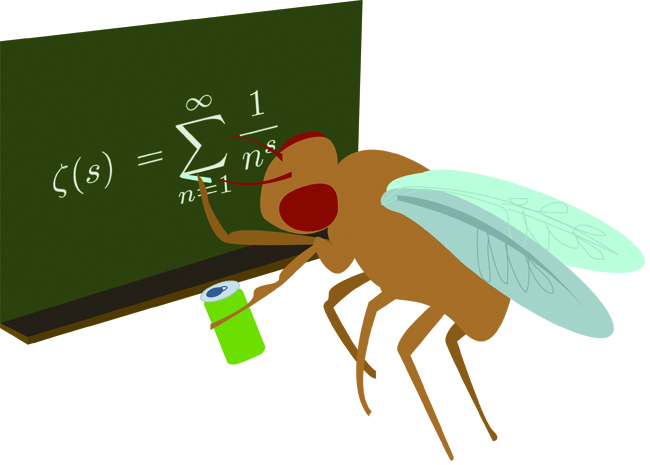Check out Daily Texan Multimedia's portrayal of this week's Science Scene.
Your Genes and Your Birth
We often wonder what makes us who we are: is it the genes our parents gave us, the way they raised us or, perhaps, something else entirely? The more scientists look into the subject, the more it seems that the answer is all of the above. A recent study, which took data from nearly 70,000 people of European, Arab, Asian and African-American descent, confirmed three genes and discovered four more that are associated with birth weight. These genes don’t exist in a vacuum, however, and the study also noted connections between two of these genes and type 2 diabetes, a separate two with height as an adult and with adult blood pressure. Of course, as with all genetic research, it should be noted that these are only associations — detection of a particular gene is not, except in a few very specific cases, a guarantee that a particular person will have a given trait. Still, the research will hopefully lead to a better understanding of how to address growth problems during pregnancies as well as the effects that our genes have on our lives.
Officially Certifiable
For the first time in nearly 20 years, psychologists are getting a new edition of their bible, the Diagnostic and Statistical Manual of Mental Disorders. The American Psychiatric Association finalized the DSM-5 this week, along with its numerous changes, the most controversial of which is the removal of Asperger’s syndrome as a distinct condition, and redefining it instead as an autism spectrum disorder. Many say the traits of Asperger’s — which include weak social skills, but often very strong mental abilities — don’t fit those of autism, and fear that this could result in students with the syndrome missing out on the special services many schools provide. Other significant changes include the dropping of the uncomfortable and dated term “gender identity disorder,” replacing it with gender dysphoria, and the addition of hoarding and disruptive mood dysregulation disorders (i.e. severe temper tantrums) as psychological conditions. Absent from the additions, despite frequent coverage from the media, is a sex addiction disorder, as there hasn’t been enough consensus of its existence to convince the APA to include it in this edition.
Young Flies Get Buzzed
When college students say they’ve experimented with alcohol, they don’t mean quite the same thing as scientists might. Since human alcohol studies require strong oversight and ethical considerations, much of our scientific knowledge about our favorite poison comes from data collected using animal models rather than Saturday nights on Sixth Street. A recent study performed at UT-Austin looked at the effect of ethanol on the learning ability of fruit fly larvae. It shouldn’t come as a surprise that drunken larvae (with blood alcohol content levels roughly equivalent to somewhere between 0.05 and 0.08 in humans) didn’t learn as well as the sober ones. However, what was surprising was that, after living in a perpetually drunken state for six days, these maggots adapted and could learn just as well as the sober ones. Taking away the ethanol sent the young fruit flies into withdrawals, during which learning abilities dropped yet again.
Call David Bowie?
The media went into a frenzy this past week speculating about what would be revealed during a scheduled announcement from NASA promising exciting news about the Curiosity rover on Mars. Unfortunately, the news, while significant, wasn’t nearly the strong evidence for life outside of Earth that we’re all still hoping for. Instead, the rover detected simple carbon compounds, which could possibly have come from Martian life. However, it’s more likely they came from a complex organic molecule that was formed by stars, arriving by way of a comet or asteroid, or simply from an inorganic molecule, neither of which would be particularly surprising to find on the surface of a planet with a thin atmosphere. NASA scientists will continue to investigate the source of these compounds and will likely come away with a better understanding of the Martian surface, but the results are unlikely to provide a perspective-altering discovery of life on another planet.
Printed on Friday, December 6, 2012 as: Birth weight genes broadly identified





















